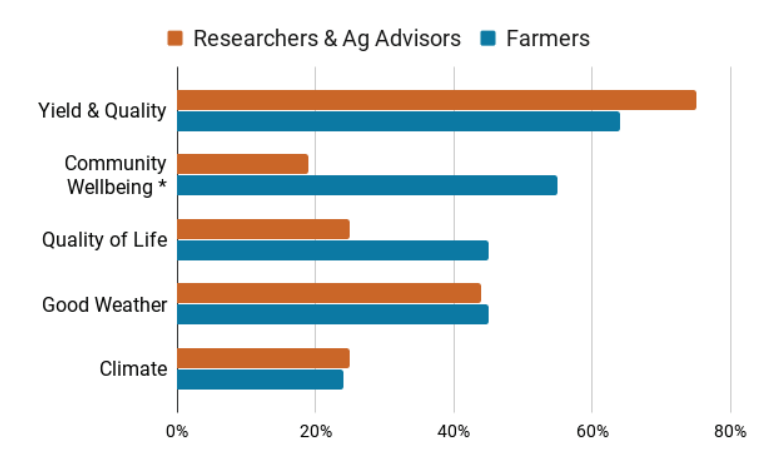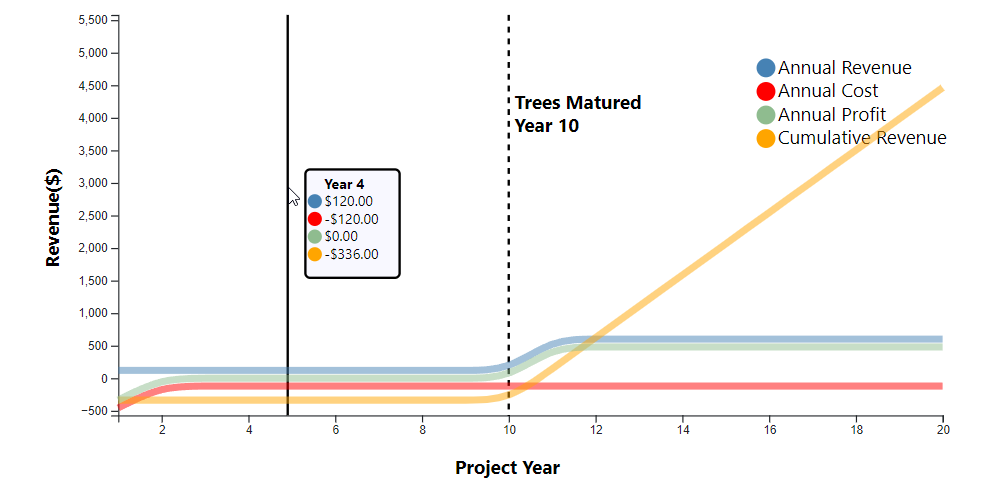Research Overview
The long-term goal of this project is to enhance the success of small, medium and beginning farmers in the Northeastern United States (specifically Maine and Vermont) by developing climate change resources that consider farmers' own perceptions, concerns, experience, and needs. We focus on these states because of the high percent of small, medium and beginning farmers in this region and the unique climate change challenges facing the Northeast.
Phase 1 - Interviews

Successful climate adaptation will depend in part on communication between farmers and outreach professionals that is framed by farmers’ perceptions and values. Differences between these stakeholder perceptions were identified by conducting mental modeling interviews with 33 small- to medium-scale farmers in Maine and Vermont, as well as 16 outreach professionals.
Farmers were asked to construct mental models of their farming systems, while outreach professionals were asked to construct models of a farming system they typically work with.
Three key differences arose between the mental models:
The importance of social dimensions in farmers’ mental models suggests that climate change communication and adaptation outreach should consider how adaptation strategies, practices, tools, and resources may affect social outcomes, which may be critical for farmers prior to adoption.
Phase 2 - Focus Groups

Farmer focus groups were conducted in the winter of 2019-2020 in Maine, Vermont, and New Hampshire to pilot and gather feedback on several climate change adaptation resources, including virtual tours, a climate change resource database, visualizations of climate change adaptation practices, and an economic tool to aid farmers in budgeting and planning for climate change adaptation.
Twenty-eight farmers from across New England (Vermont, Maine, and Massachusetts) and New York provided feedback on these tools through small group discussions and surveys.
Phase 3 - Tools

Based on farmer and agricultural expert interviews, farmer feedback from the focus groups, a review of New England farmers’ plans and needs for climate change adaptation, and an assessment of available climate change adaptation resources, the research team identified three agricultural practices (silvopasture, irrigation, and tarping) and two tools (visualizations and economic tool) that are of particular need and interest to New England farmers.
Visualization and economic tools and an overview brief with additional resources were developed for each agricultural practice and shared with the New England farming community through webinars, workshops, and regional conferences in winter 2021-2022.